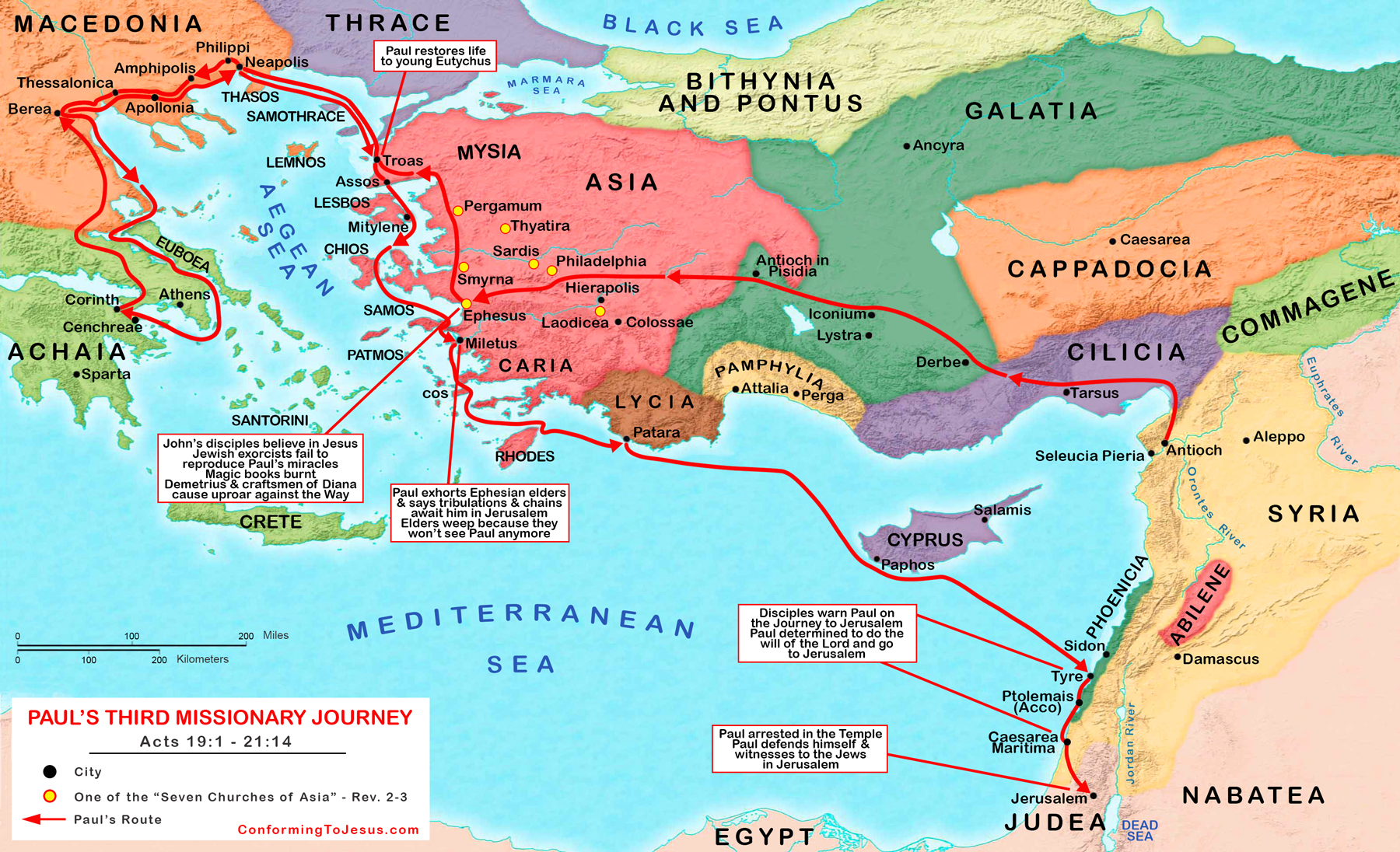Notes for my weekly Bible Study group.
Resources
Overview
In Acts 16 God uses Lydia so that her whole family can come to faith. Everything thst happens in Acts 16 is because of God’s timing:
- Paul being prevented from entering Asia because it was more important to go to Macedonia
- Paul meeting Timothy
- Paul meeting Lydia who leads her entire household to become followers of Jesus Christ
- Paul exorcising the slave-girl
- Paul leading prayer among the prisoners
- Paul baptizing the prison guard
- Paul and Silas being set free by the magistrates
Summary

- Paul journeyed to Derbe and Lystra, going north from Jerusalem, and met Timothy, a young man in his late teens or early twenties with a Greek father and Jewish mother. Paul described Timothy as a “true son in the faith”.
- Timothy becomes Paul’s student and trusted colleague. Timothy eventually takes Silas’s place as Paul’s missionary partner. Paul circumcises Timothy and takes him to meet the Jerusalem Council. Timothy’s circumcision gave him “full access to the synagogues because the Jews thought he hadn’t abandoned his Jewish roots.
- Paul, Silas, and Timothy continued to travel, sharing the Jerusalem Council’s decisions and strengthening churches in both faith and new converts.
- Paul’s planned to preach in Asia but the Holy Spirit prevented him from going there and Bithynia (northwest Turkey).
- Paul was given a vision to preach in Macedonia while he was in Troas (an ancient Greek city near the northern tip of Turkey’s western coast). Macedonia was a province of Greece and located on the mainland. Macedonia was the next step for “taking the Gospel from Asia into Europe.”
- Paul, Silas, and Timothy then set out for Macedonia. Paul and his companions knew nothing about Macedonia or the city of Philippi but journeyed there anyway under the guidance of the Holy Spirit.
- While in Philippi Paul and his colleagues wanted to pray on the Sabbath. Unfortunately they were unable to find a place to worship because there were no synagogues in the city because there were fewer than ten Jewish men in the city. Paul and his colleagues went down to the river and spoke with a group of women, including Lydia, a Gentile from Thyatira (an ancient city in Asia). Lydia and her household embraced the gospel and were then baptized.
- Paul and his companions stayed at Lydia’s house following her baptism.
- Lydia opened her home to Paul and his colleagues but also to the entire church in Philippi.
- Paul and Silas meet a slave-girl who can predict the future. Paul realizes she was possesed by a demon, giving her the power of divination. She was using these powers to earn her owners money through fortune-telling. Paul exorcises the demon, removing this power from her.
- The slave-girl’s owners were furious and seized Paul and Silas to face the authorities. The slave-girl’s owners complained to the magistrates that Paul and Silas were promoting customs that were illegal for Romans and Jewish people to practice. The magistrates order Paul and Silas to be stripped, beaten with rods (flogged), and thrown into prison.
- Around midnight Paul and Silas were praying when an earthquake occurs, shaking the prison’s foundations and causing all of the prison doors to fly open and the prisoner’s chains to fall off. The guard is convinced the prisoners had all escaped and plans to commit suicide. Paul assures him that no one escaped even though they could have easily done so. The guard is so impressed that he accepts Jesus and is baptised.
- The next day the magistrates try to set Paul and Silas free but Paul insisted the magistrates come free them on their own instead of sending guards to do so. The magistrates come and free Paul and Silas.
- Paul and Silas return to Lydia’s house to pray with their brothers and sisters prior to leaving for another town.

